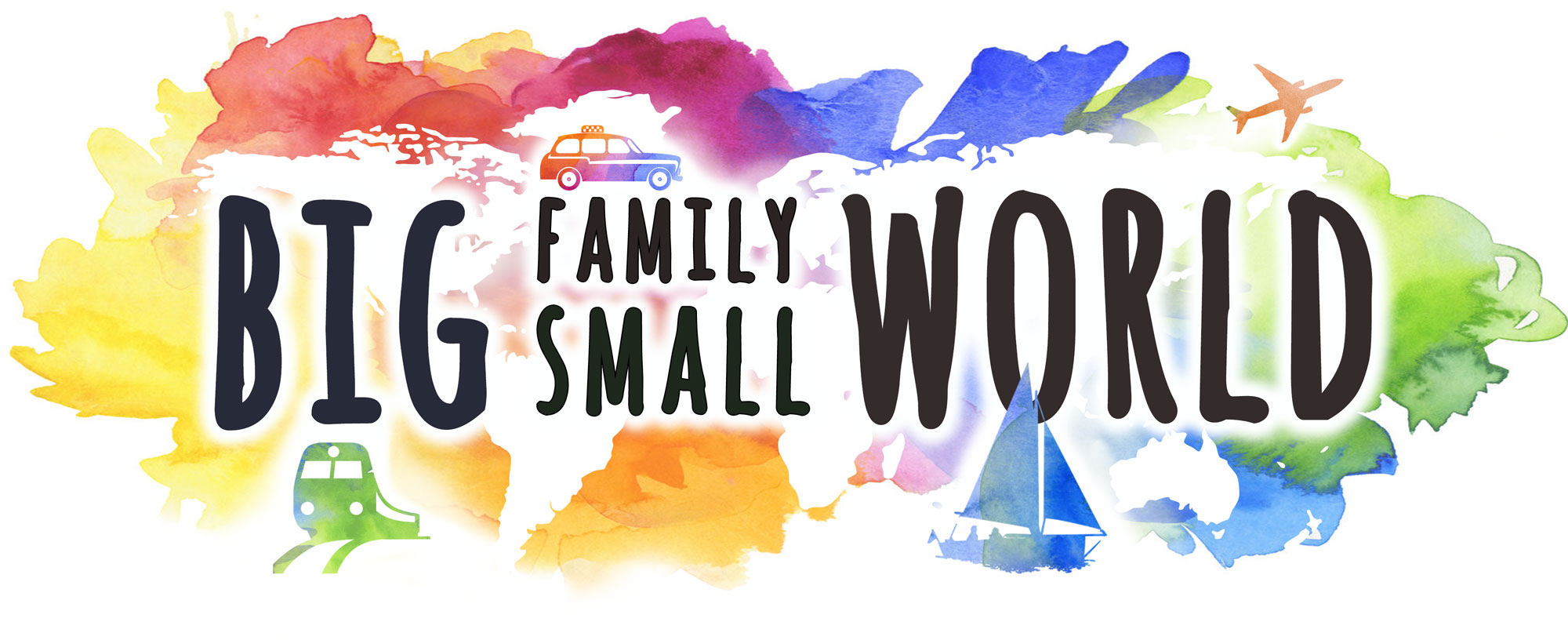We have a little catching up to do! Our last blog post was about a big family decision. The one before that was about taking a day to really see who the kids are becoming. The last time I wrote about travel was in Vietnam – yikes!
Reverse culture shock
Most people would get culture shock arriving in Vietnam. We got it when we left. Arriving in Melbourne, Australia – nearly antipodal to Toronto – felt like coming home . . .well, a version of home in a parallel universe where everyone has cool accents, perfect tans and sinks drain counter-clockwise.
It was our first English-speaking developed country in eight months. Signs we could read, foods we recognized, strangers we could understand . . . We walked the streets of Melbourne giddy in the knowledge that the vehicles around us would most likely follow the traffic rules. It was glorious . . . until we had to buy something.
Luxury and meta-luxury
Twenty dollars for a burger. Six for a coffee. An Uber across town was $40. Two days earlier we had fed the entire family lunch in Hanoi at a highly rated cafe for $12. Now we were back in the western world. Infrastructure, green spaces, clean, safe, familiar – luxuries that we hadn’t seen for eight months. But all luxuries come at a price.
The minimum wage in Australia is $18.93AUD ($18CAD) – an hourly rate most of the world’s population would drool over (including Canada, actually). Of course those wages get expensed and taxed and flow back into the economy, raising the price of almost everything.
As we walked around Melbourne (and subsequently Sydney) I thought about the contrast between Australia and all those less developed countries we’ve been in. As a traveler, it’s a trade off: cheap adventure with less comfort vs. expensive luxury in a more familiar place. There’s no right answer. The meta-luxury is that we get to choose.
National values
I’m not very political, but I also thought about the decisions that are made at a national level. How does a country choose to allocate its resources? What are the values that guide those decisions? Are those values better aligned with the needs of the population or special interest groups? What if the desires of the population are at odds with the long term sustainability of the society, socially, financially or environmentally?
Minimum wage, tax rates, investment, infrastructure, environmental sustainability . . . it’s all such a tricky mess . . . and, in a democracy, the people tasked with making those decisions get there by winning a popularity contest. Such a strange system – but probably the best we’ve got.
We end up with a fascinating and colourful mosaic of nations, not just because of geographic separation, but because national values differ. A country that values individualism and personal pursuits above all else will wind up quite different from one that values community and social networks. One with a focus on short term gain (a side effect of frequent elections?) will have very different policies than one with a long view.
Back to Australia
Things like this give me something to think about as we explored Australia’s two largest cities: Melbourne and Sydney. Overall, it felt like a warm hug from an aunt you haven’t seen in a long time – safe, familiar, and easy to be around . . . But not particularly challenging – which was nice for a change.
Here’s a little gallery of photos and descriptions of our ten days in the sixth largest country in the world. Stay tuned for a post about the first part of our New Zealand road trip and one by Lindsay on her thoughts about our decision to return to Canada.

The Sydney Opera House – The definition of an iconic city landmark. Over-budget by roughly 500%. Worth it? 
Should nine year olds have bucket lists? Well, this was on Ben’s. 
The Melbourne Pumping Station at Scienceworks – The flow of sewage has never been more beautiful. Turned Smellbourne into Melbourne. Still operational. 
Need a volunteer for your science centre show? Owen’s hand is up before you’re done asking. 
On a walking tour in Sydney. These empty cages play the songs of all the native bird species that used to call this urban jungle home. Public art installations. Worth it? 
The Sydney Harbour Bridge. I like how the arc of the bridge illustrates the flow of thoughts from my head onto this blog. 
Walking along the coast of Sydney, the sandstone formations are incredible. 
Linds got Eli to sit still for two seconds. 
The world famous Bondi Beach (BTW, it’s Bond-eye, not Bond-ee. Don’t embarrass yourself like we did.) 
We love free walking tours. This is St. Mary’s Cathedral. 
A sculpture in central Sydney, “Waiting” – Linds and Ben trying to find out what he’s waiting for. 
Royal Park Nature Play Playground in Melbourne. Public greenspaces and playgrounds . . . luxury or essential to urban happiness?

I can empathize with the reverse culture shock, especially since you’ve been away for so long. Something I never expected when I returned home from Haiti. Took about a month to adjust back to Canada’s reality of individualism and sense of entitlement.
Hope you are all keeping well. Can’t wait to hear about New Zealand!
Cheers!
I remember returning to Canada from rural Uganda as a medical student. The contrasts were stark. We live in a sanitized bubble of complexity and entitlement. They live in a raw, exposed world of risk and uncertainty. I’m in no position to judge other people, but the experience left a lasting impression on me and was probably an important link in the chain reaction that led to this trip. It helps to be prepared for the difficult adjustment phase, I think.